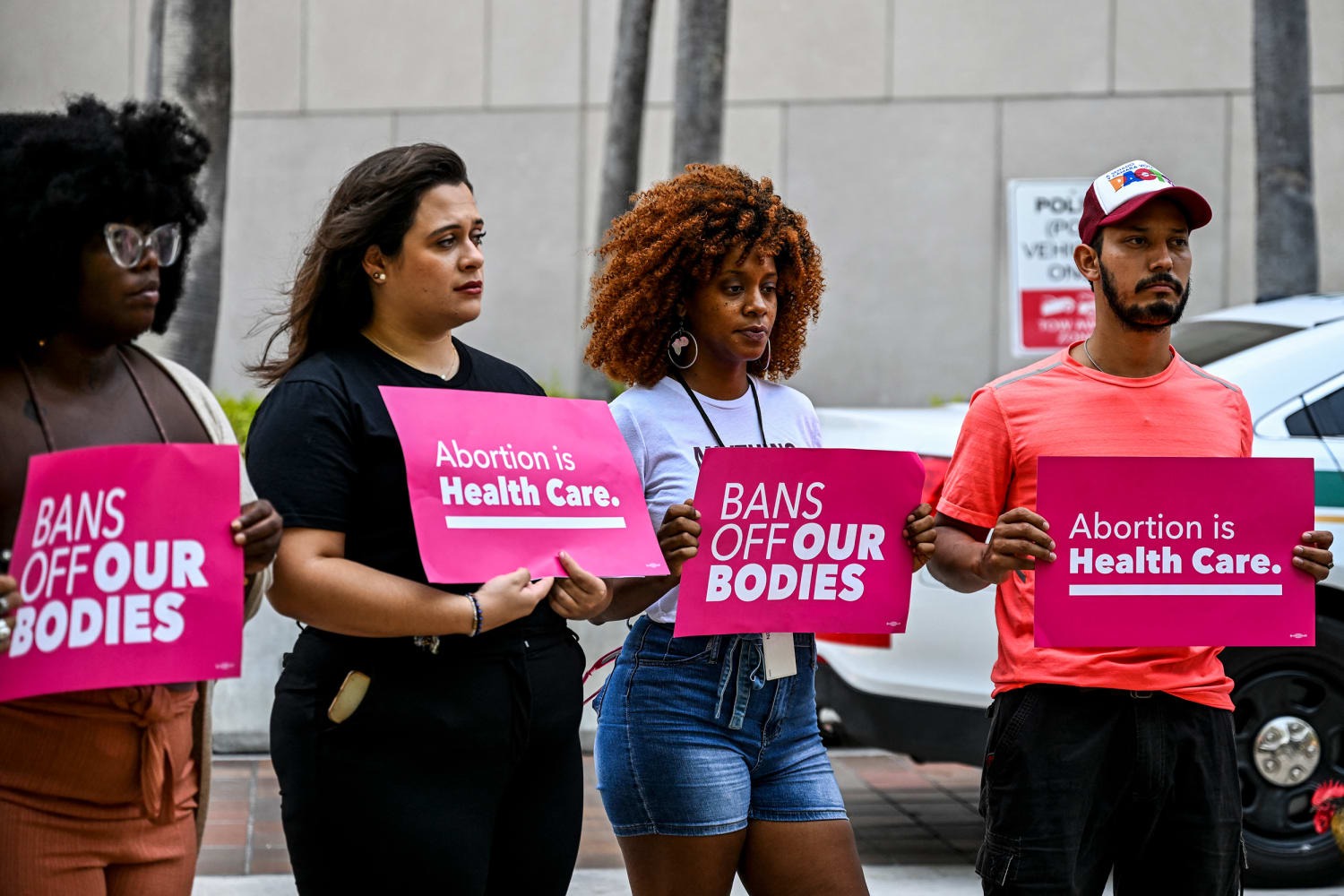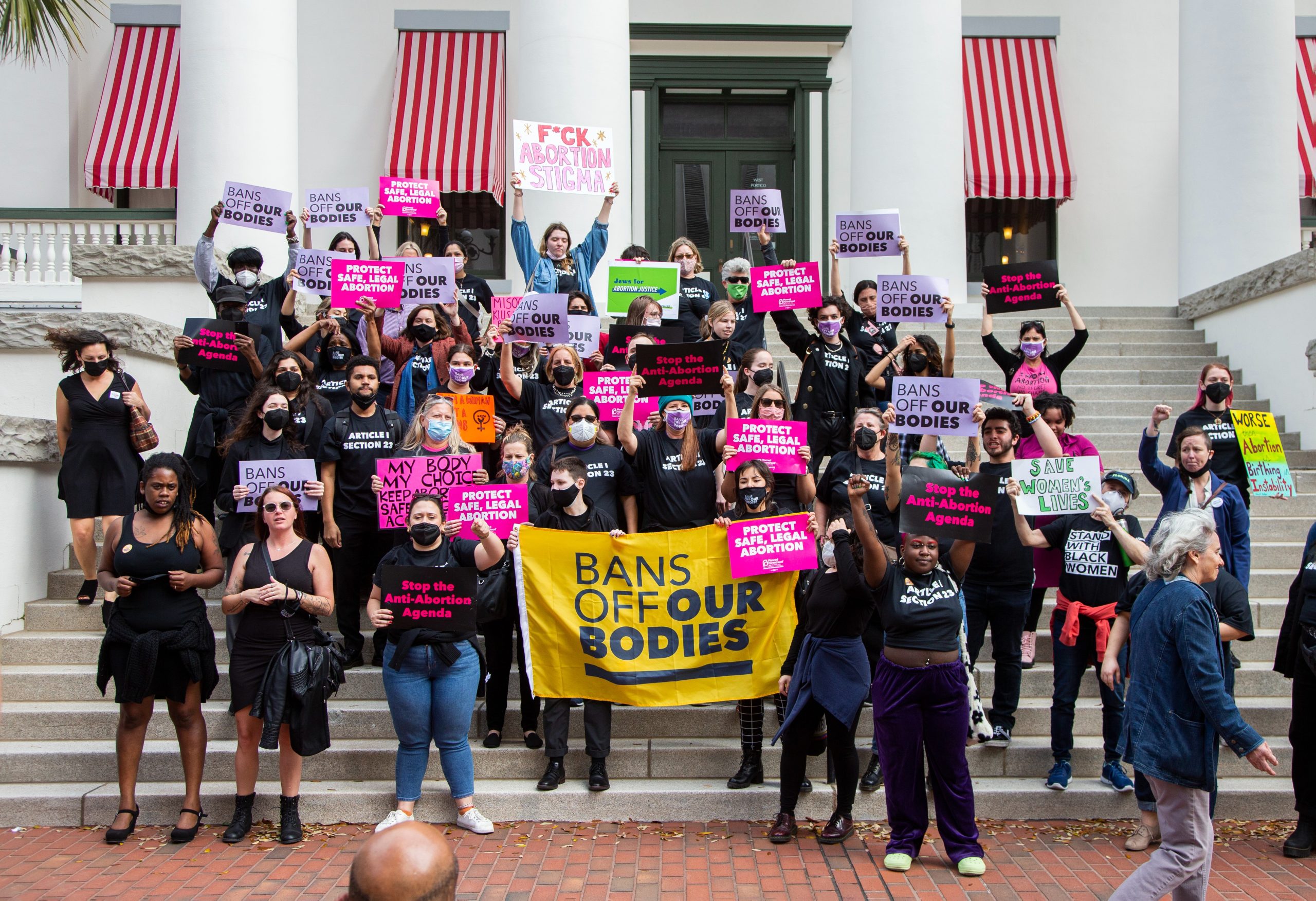As Florida’s new ban on most abortions after six weeks of pregnancy is set to take effect, healthcare providers and advocates on both sides of the issue are mobilizing.
Dr. Chelsea Daniels, who works at Planned Parenthood in Miami, describes the impact of the ban on her patients as distressing, noting the panic on their faces when informed about the restrictions. With appointments filling up and staff working overtime, clinics are bracing for the stricter regulations.

Florida Citizens On Abortion Ban (Credits: NBC News)
The ban allows exceptions for rape, incest, human trafficking, fatal fetal abnormalities, and to save the pregnant person’s life. However, concerns arise about the uncertainty surrounding the threshold for endangering the pregnant person’s life and the reluctance of some doctors to provide necessary care.
As options within Florida become limited, organizations like the Tampa Bay Abortion Fund are helping patients travel out of state for abortions, acting as a resource for financial and logistical support.
On the other side of the issue, adoption agencies like Bundle of Hope Adoption Family Services are preparing for increased demand under the new law. Founder Glenda Richardson Carr, who supports the ban, aims to support birth mothers considering adoption as an alternative.
The six-week ban, part of a broader trend in states restricting abortion access, has prompted discussions about a ballot question in November on whether to enshrine abortion rights in the state constitution.

Proposed Abortion Ban By Florida Citizens (Credits: Politico)
Advocates like Andrew Shirvell of Florida Voice for the Unborn hope for further restrictions on abortion, while others, like Dr. Daniels, see the proposed amendment as a chance to protect access to abortion.
The fate of abortion rights in Florida may be determined by voters in the upcoming election, with potential implications for abortion access and healthcare policy in the state.























